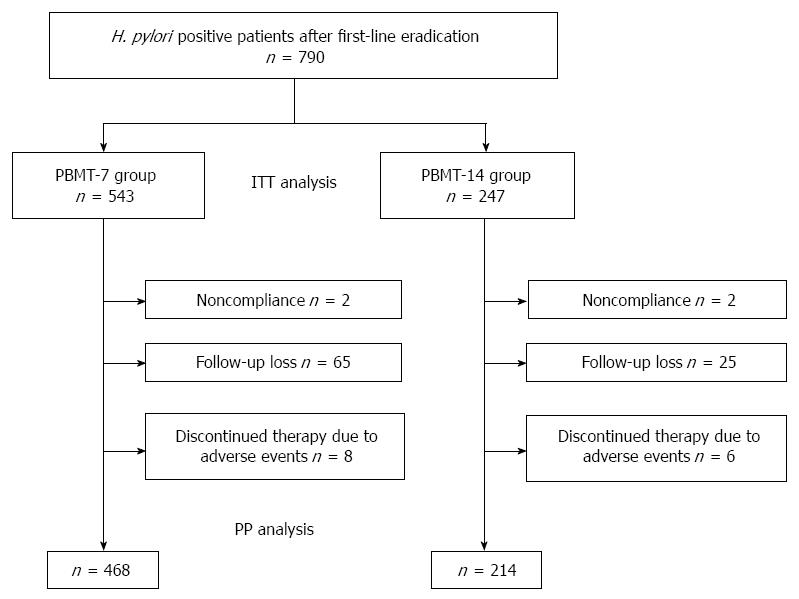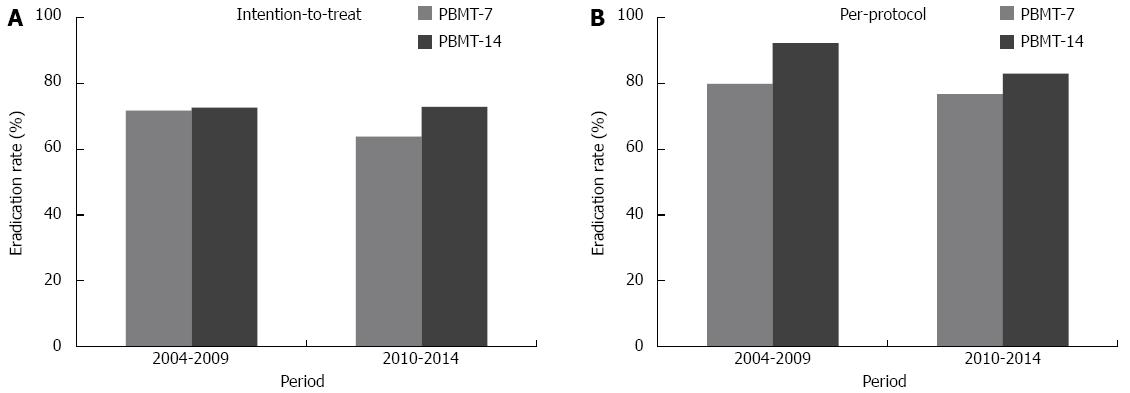Copyright
©The Author(s) 2015.
World J Gastroenterol. Jul 14, 2015; 21(26): 8132-8139
Published online Jul 14, 2015. doi: 10.3748/wjg.v21.i26.8132
Published online Jul 14, 2015. doi: 10.3748/wjg.v21.i26.8132
Figure 1 Flow schematic of the study included in intention-to-treat and per-protocol analyses.
ITT: Intention-to-treat; PP: Per-protocol; PBMT-7: 7-d bismuth-based quadruple therapy; PBMT-14: 14-d bismuth-based quadruple therapy; ITT: Intention-to-treat; PP: Per-protocol.
Figure 2 Comparison of the eradication rate between 2004-2009 and 2010-2014 periods in the 7-d bismuth-based quadruple therapy and 14-d bismuth-based quadruple therapy group according to the intention-to-treat (A) and per-protocol analyses (B) (P < 0.
05). PBMT-7: 7-d bismuth-based quadruple therapy; PBMT-14: 14-d bismuth-based quadruple therapy.
-
Citation: Hwang JJ, Lee DH, Lee AR, Yoon H, Shin CM, Park YS, Kim N. Fourteen-
vs seven-day bismuth-based quadruple therapy for second-lineHelicobacter pylori eradication. World J Gastroenterol 2015; 21(26): 8132-8139 - URL: https://www.wjgnet.com/1007-9327/full/v21/i26/8132.htm
- DOI: https://dx.doi.org/10.3748/wjg.v21.i26.8132










